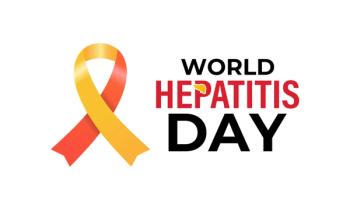
Clinical
Latest News

Latest Videos

CME Content
More News

Proceeding with hematopoietic stem cell transplantation (HSCT) is more cost-effective than delaying the procedure in patients with intermediate-risk acute myeloid leukemia (AML).

Obecabtagene autoleucel (obe-cel) is shown to be effective and safe for older adults with relapsed/refractory (R/R) B-cell acute lymphoblastic leukemia (ALL), while brexucabtagene autoleucel's (brexu-cel) expansion predicts durable remission.

The decline in ovarian cancer mortality rates after 2003 can be attributed to advances in treatment, precision medicine, improved preventive strategies, and a reduced disease incidence, according to Muhammad Faizan, MBBS.

To mark the 30th anniversary of The American Journal of Managed Care (AJMC), each issue in 2025 includes a special feature: reflections from a thought leader on what has changed—and what has not—over the past 3 decades and what’s next for managed care. The August issue features a conversation with Charles N. (Chip) Kahn III, MPH, the president and CEO of the Federation of American Hospitals and a longtime member of the AJMC editorial board.

Following the FDA approval of linvoseltamab (Lynozyfic; Regeneron) for heavily pretreated multiple myeloma, Sundar Jagannath, MBBS, highlights its potential for earlier use, increased accessibility, and greater competition in the B-cell maturation antigen (BCMA) bispecific antibody space.

US ovarian cancer mortality declined from 1999 to 2020, but significant disparities remain among older women, non-Hispanic White women, and those living in rural areas, as well as in the Northeastern and Midwestern regions, according to Muhammad Faizan, MBBS.

Noting the profound impact of living with a chronic condition that constantly reminds patients of their "patient" status, Andrew Kuykendall, MD, Moffitt Cancer Center, emphasizes the importance of therapies that can offer a sense of normalcy.

The newly FDA-approved linvoseltamab (Lynozyfic; Regeneron) may improve access to multiple myeloma treatment by offering an off-the-shelf, outpatient option that can be administered in community settings, according to Sundar Jagannath, MBBS.

Panelists discuss how emerging evidence from first-line therapy trials continues to demonstrate the superiority of quadruplet over triplet regimens, with the CEPHEUS subgroup analysis confirming that even higher-risk and less-fit patients can benefit from 4-drug combinations while maintaining acceptable safety profiles.

Panelists discuss how quality of life (QOL) and treatment convenience should be balanced with maximal depth of response through personalized therapy approaches, emphasizing the importance of multidisciplinary care teams and the flexibility to adapt treatment regimens based on individual patient preferences and circumstances.

Real-world data support the effectiveness of combining platinum-based chemotherapy with PD-1 inhibitors for recurrent limited-disease small cell lung cancer (SCLC), enhancing patient outcomes.

The FDA approved pegcetacoplan (EMPAVELI; Apellis Pharmaceuticals) as the first treatment for patients 12 years and older with the rare, severe kidney diseases C3 glomerulopathy (C3G) and primary immune complex membranoproliferative glomerulonephritis (IC-MPGN).

With limited treatment options and potential for admission to the intensive care unit, researchers of a new paper highlighted the importance of discussing goals and initiating palliative care early on.

This global study found rising rates of pediatric hypertension, highlighting obesity's impact and the need for improved monitoring and prevention strategies.

Social risk factors significantly increase the likelihood of developing long COVID, highlighting the urgent need for equitable health care and support systems.

The primary end point in PREVAIL is Myasthenia Gravis-Activities of Daily Living total score improvement from baseline, and the secondary end points are Quantitative Myasthenia Gravis total score and Myasthenia Gravis Composite total score.

In a webinar, experts discussed cardiovascular disease prevention strategies, emphasizing personalized risk assessments and emerging treatments to combat this health crisis.

A nascent hypothesis regarding pulmonary arterial hypertension (PAH) is that there is a link between thyroid dysfunction and PAH risk; much remains to be investigated to prove causality.

Pediatric hidradenitis suppurativa faces diagnostic delays and stigma, while adalimumab shows superior drug survival compared with infliximab in children.

World Hepatitis Day 2025 and its theme, “Hepatitis: Let’s Break It Down,” emphasize the urgent need to remove barriers to prevention, testing, and treatment to reduce liver cancer and eliminate hepatitis by 2030.

The FDA’s approval of linvoseltamab for adults with heavily pretreated relapsed/refractory multiple myeloma marks a significant advance, with Sundar Jagannath, MBBS, emphasizing its high response rates, manageable dosing schedule, and reduced treatment burden.

Mother-to-child transmission often led to pretreatment drug resistance and acquired drug resistance in children living with HIV.

This Managed Care Cast episode explores how high costs and inconsistent insurance coverage for incretin mimetics impact obesity management and patient care.

Thimerosal, a mercury-based preservative, has been incorrectly linked to the development of autism by antivaccine groups.

An expert discusses how long-term safety considerations are evaluated through clinical trial data and postmarketing surveillance, emphasizing the importance of reporting unexpected adverse events to the FDA, considering patient-reported outcomes beyond just high-grade toxicities, and working closely with specialists like ophthalmologists using standardized assessment tools and treatment algorithms to manage drug-specific adverse effects like visual complications from folate receptor–targeting therapies.















